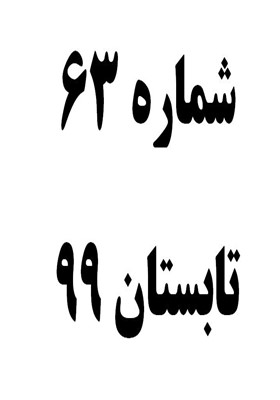رابطهی مهارتهای تدریس ،هیجان تحصیلی،استرس تحصیلی و کنترل رفتاری ادراکشده در پیشبینی پیشرفت تحصیلی دانشجویان
محورهای موضوعی : علوم تربیتی
داود میرزایی فر
1
,
نبی نظری
2
*
![]() ,
فریبا منظمی تبار
3
,
فریبا منظمی تبار
3
1 - دکتری برنامه ریزی درسی دانشگاه بوعلی، همدان، ایران.
2 - دکتری روانشناسی تربیتی، دانشگاه لرستان ، خرم آباد، ایران (نویسنده مسئول)nazariirani@gmail.com
3 - عضو هیات علمی گروه روانشناسی، واحد همدان، دانشگاه آزاد اسلامی، همدان، ایران
کلید واژه: آموزش عالی, هیجان تحصیلی, استرس تحصیلی, مهارت تدریس, کنترل رفتاری ادراک شده,
چکیده مقاله :
هدف این مطالعه، پیشبینی پیشرفت تحصیلی دانشجویان با بررسی رابطهی مهارتهای تدریس،هیجانهای تحصیلی(مثبت و منفی) استرس تحصیلی و کنترل رفتاری ادراک شده(مثبت و منفی) بود. جامعه آماری شامل دانشجویان دانشگاه آزاد اسلامی واحد همدان بود. روش نمونه گیری ، نمونه گیری طبقهای نسبی بود که تعداد 360 نفر انتخاب گردید. روش تحقیق توصیفی از نوع همبستگی میباشد. اعتبار مدل اندازهگیری با استفاده از پارامترهای آلفای کرونباخ،ضریب پایایی مرکب ، روایی همگرا و روایی واگرا برآورد شد . در بخش ارزیابی مدل ساختاری ، معیارهای ضریب تعیین،اندازهی اثر، ضریب استون-گایسر محاسبه گردید. بررسی معیار برازش بر اساس رویکرد حداقل مربعات جزیی صورت گرفت. دادههای پژوهش بهوسیله نرمافزارهای SPSS نسخهی 25 و اسمارت پی ال اس نسخهی 3 تحلیل شدند که نتایج ارزیابی ها در هر سه بخش ، روایی ، اعتبار و برازش الگوی پیشنهادی را در سطح مطلوبی نشان داد، به گونه ایکه الگوی پیشنهادی قابلیت بهکارگیری در موقعیتهای مختلف توسط محققان را دارد. نتایج نشان داد رابطهی کنترل رفتاری ادراک شده مثبت با پیشرفت تحصیلی دانشجویان معنادار بود و نقش کلیدی مهارت اساتید دانشگاه در پیشرفت دانشجویان مورد تائید قرار گرفت.
This cross-sectional study conducted to develop a model for predicting academic achievement of university students by investigating the relationship between teaching skills, academic emotions (positive and negative), and academic stress associated with perceived behavioral control using structural equation modelling. The statistical population consisted of 360 students of Islamic Azad University of Hamedan who were selected randomly using relative stratified method. The study was descriptive and correlation. The data was analyzed by SPSS version 25 and SmartPLS version 3.2.8. The results showed that validity and adequacy of the suggested model was suitable. Thus, it could be used in different situations by experts in the related areas. The relationship between positive perceived behavioral control and academic achievement was significant; perceived behavioral moderated the effect of negative emotion and stress on academic achievement. The key role of professor skills in academic achievement of students was confirmed directly or through its effect on positive emotion. The effect of teaching skills was not significant on academic achievement of students with negative perceived behavioral control, while the effect of academic stress was confirmed on these students. Therefore, identification of students with negative perceived behavioral control and psychological interventions for these students can be effective in their academic achievement and their mental health.
_||_

